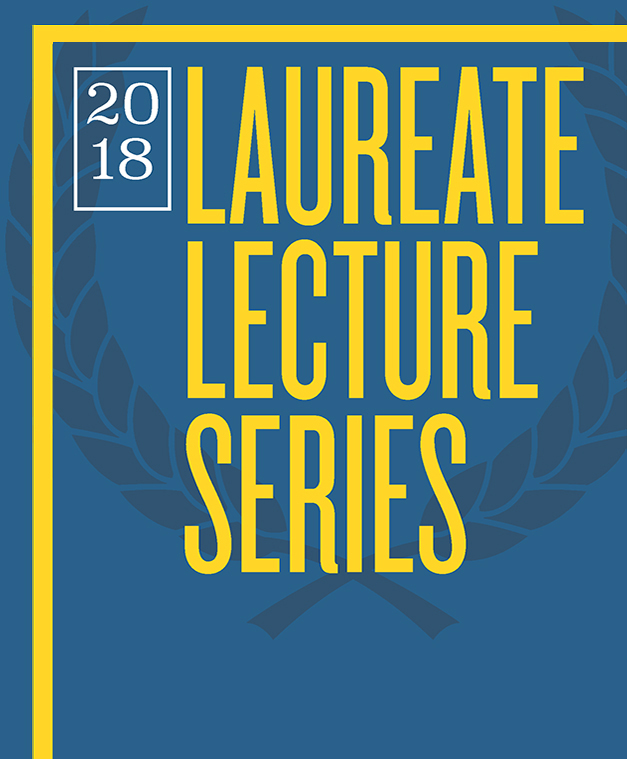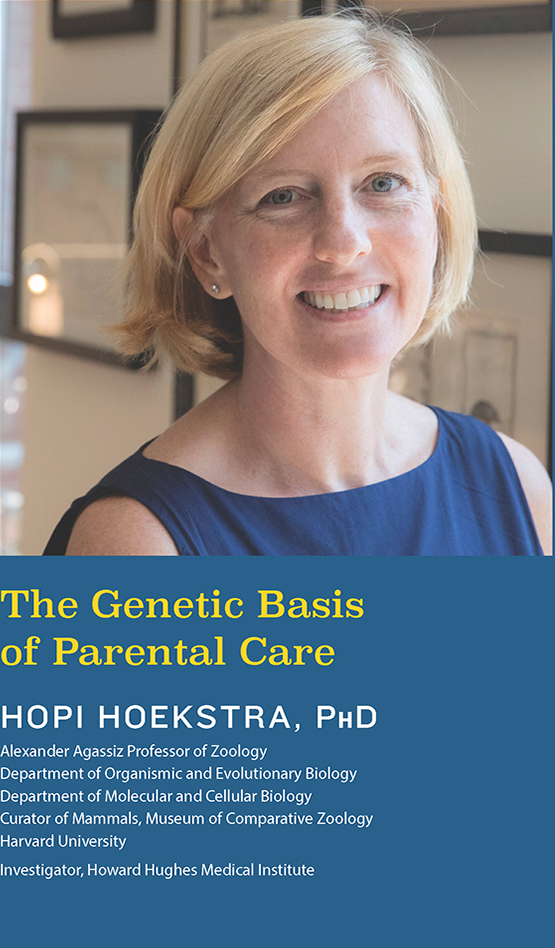Hopi Hoekstra, PhD, Harvard University’s Alexander Agassiz Professor of Zoology and curator of mammals at the Museum of Comparative Zoology, will deliver the next presentation in the 2018 Senior Vice Chancellor’s Laureate Lecture Series, a yearlong program featuring top biomedical researchers in their fields. Hoekstra’s talk, “The Genetic Basis of Parental Care,” will be delivered at 4 p.m. on Thursday, September 27, in Scaife Hall, Lecture Room 6. [Add to Calendar] This seminar series is open to the public, including all interested University of Pittsburgh and Carnegie Mellon University faculty, students, and staff. Arthur S. Levine, MD, Pitt’s senior vice chancellor for the health sciences and John and Gertrude Petersen Dean of Medicine, will introduce Hoekstra and lead the discussion following the lecture.
Hoekstra has been widely recognized for her innovative studies of the genetic mechanisms that influence the evolution of highly complex natural behaviors. In 2013, Hoekstra published an article in Nature on the genetics of burrowing behavior in two sister species of mice: one that constructs elaborate burrows and another that builds a simple, shallow nest. Hoekstra and her colleagues used behavioral assays and genetic evaluation to identify four regions of DNA that govern the length of the tunnels dug by the mice, while working toward identifying the specific genes that control tunneling behavior. By identifying and characterizing the molecular changes behind traits that help organisms survive in the wild, Hoekstra and colleagues further our understanding of how variation is generated and maintained in natural populations. She uses wild and captive populations of species, including deer mice, to track genetic changes that contribute to variations in morphology, reproduction, and behavior. Ultimately, her work could illuminate evolution and variation in other species, including humans.
Hoekstra received her bachelor’s degree in integrative biology from the University of California, Berkeley, and her zoology PhD from the University of Washington. At the University of Arizona, she completed a postdoctoral fellowship in ecology and evolutionary biology under a Ruth L. Kirschstein National Research Service Award funded by the National Institutes of Health. She is a Howard Hughes Medical Institute investigator and a member of the Broad Institute of the Massachusetts Institute of Technology and Harvard University. Her honors and awards include election to the American Academy of Arts and Sciences and the National Academy of Sciences, the Richard Lounsbery Award from the National Academy of Sciences, and the Bjorkman-Strominger-Wiley Prize from Harvard University.
|

















